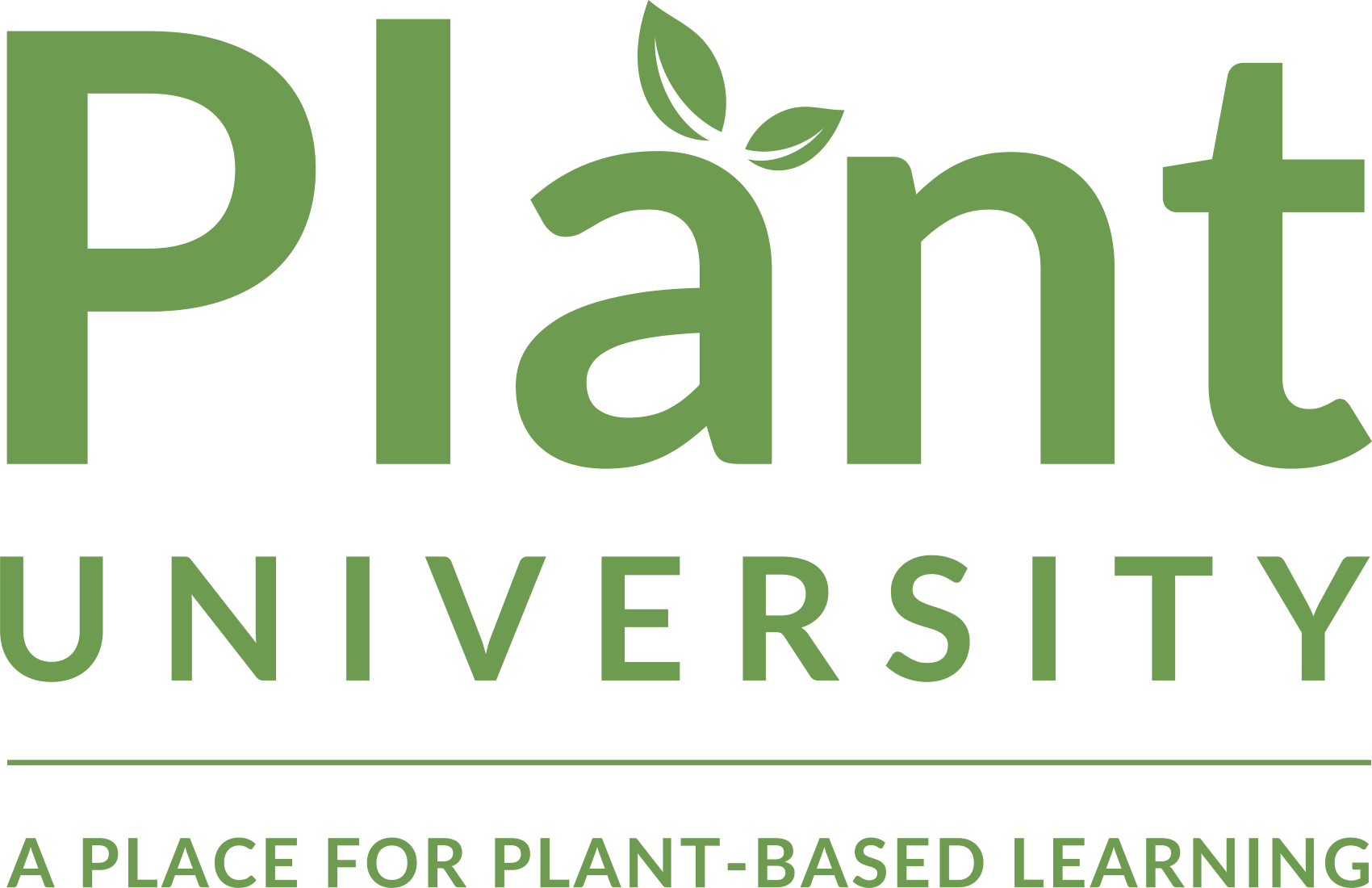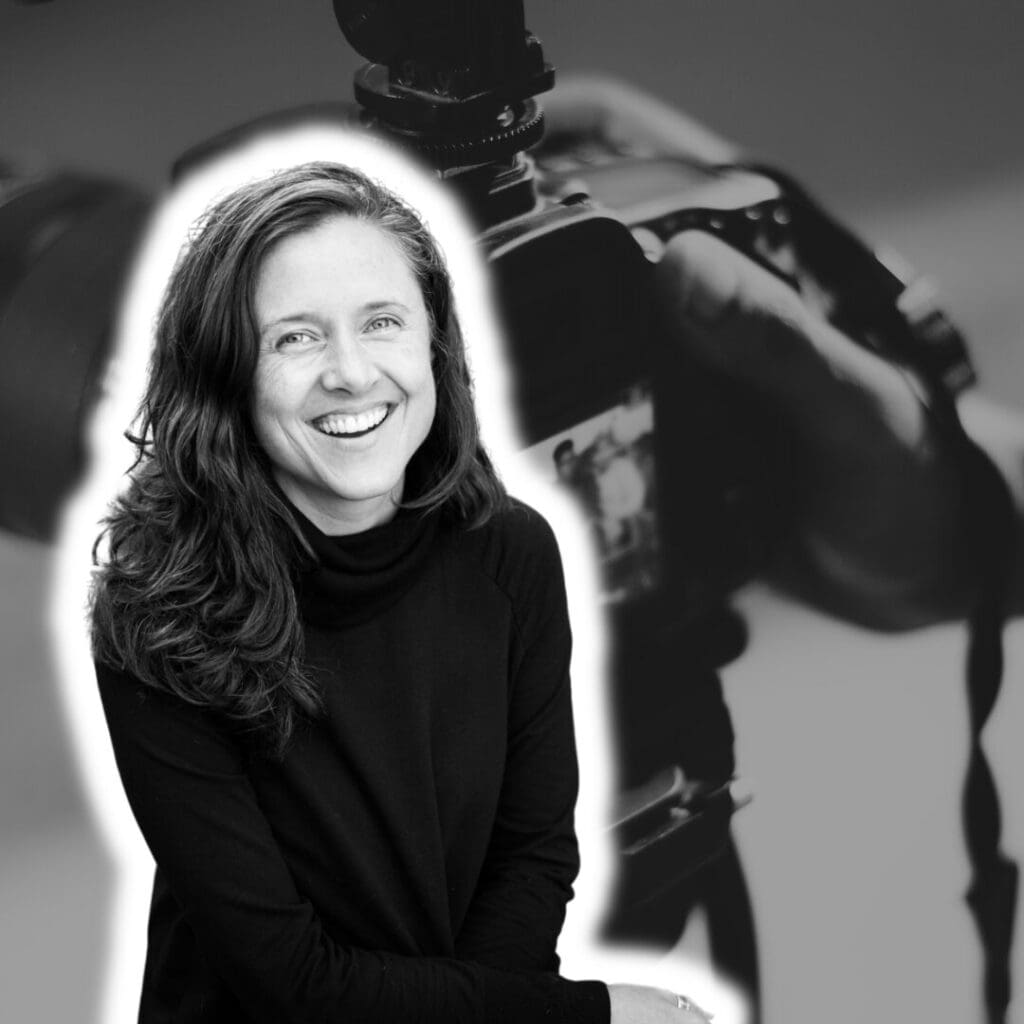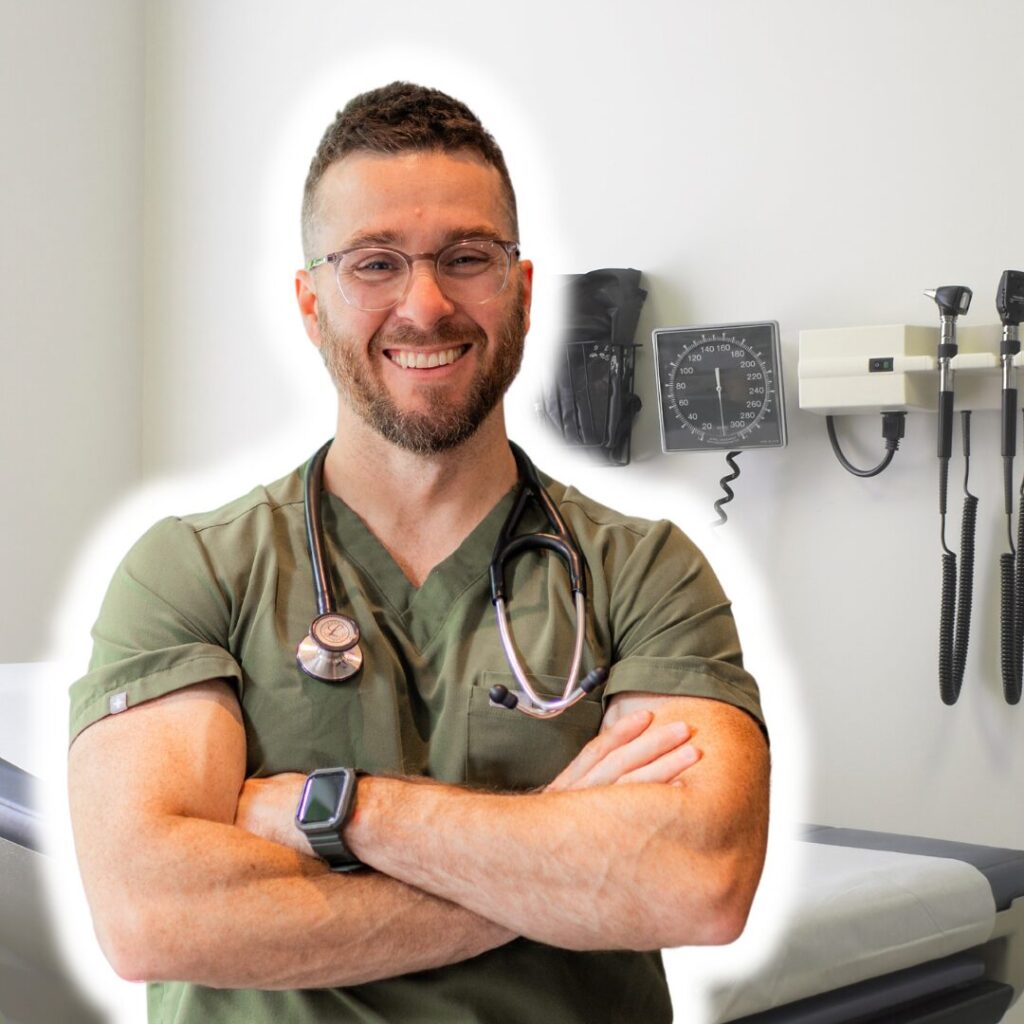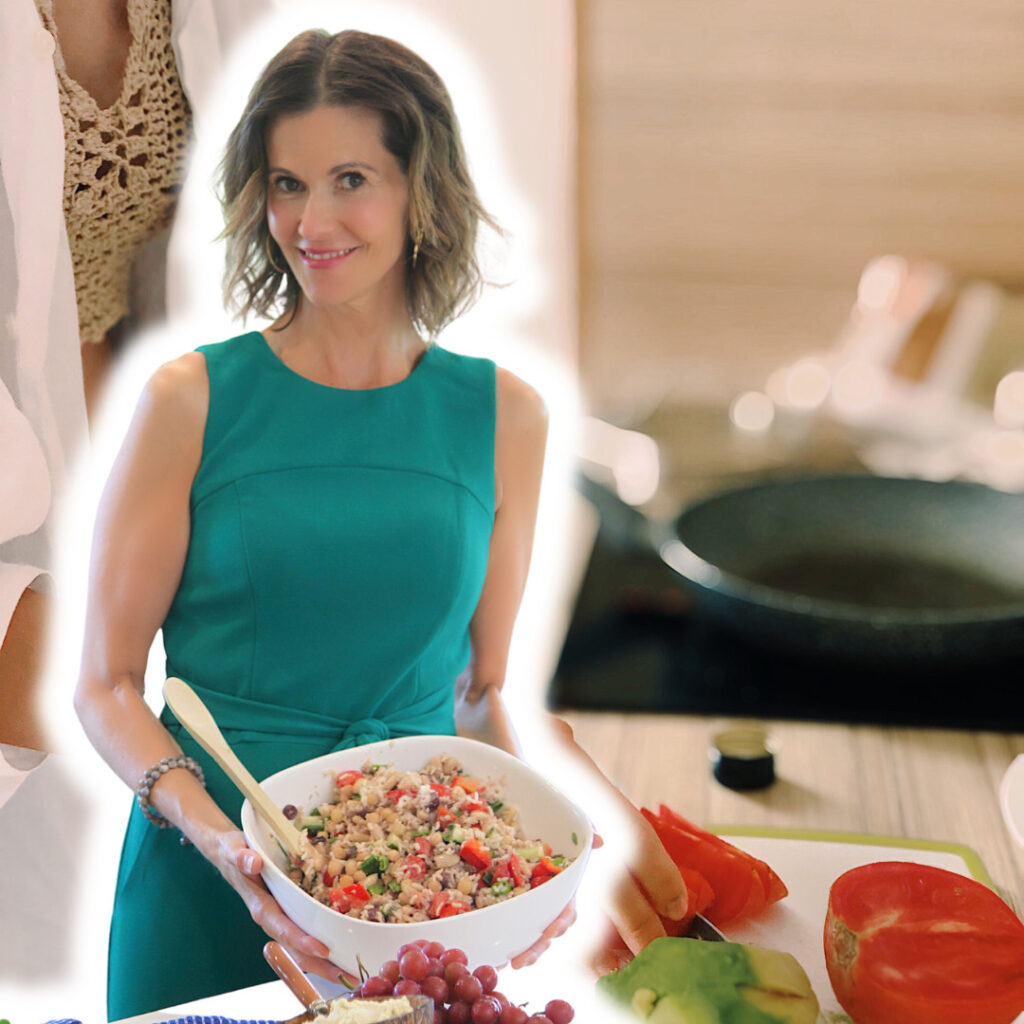I’m an online cook; here’s how I advocate for plant-based eating in my community
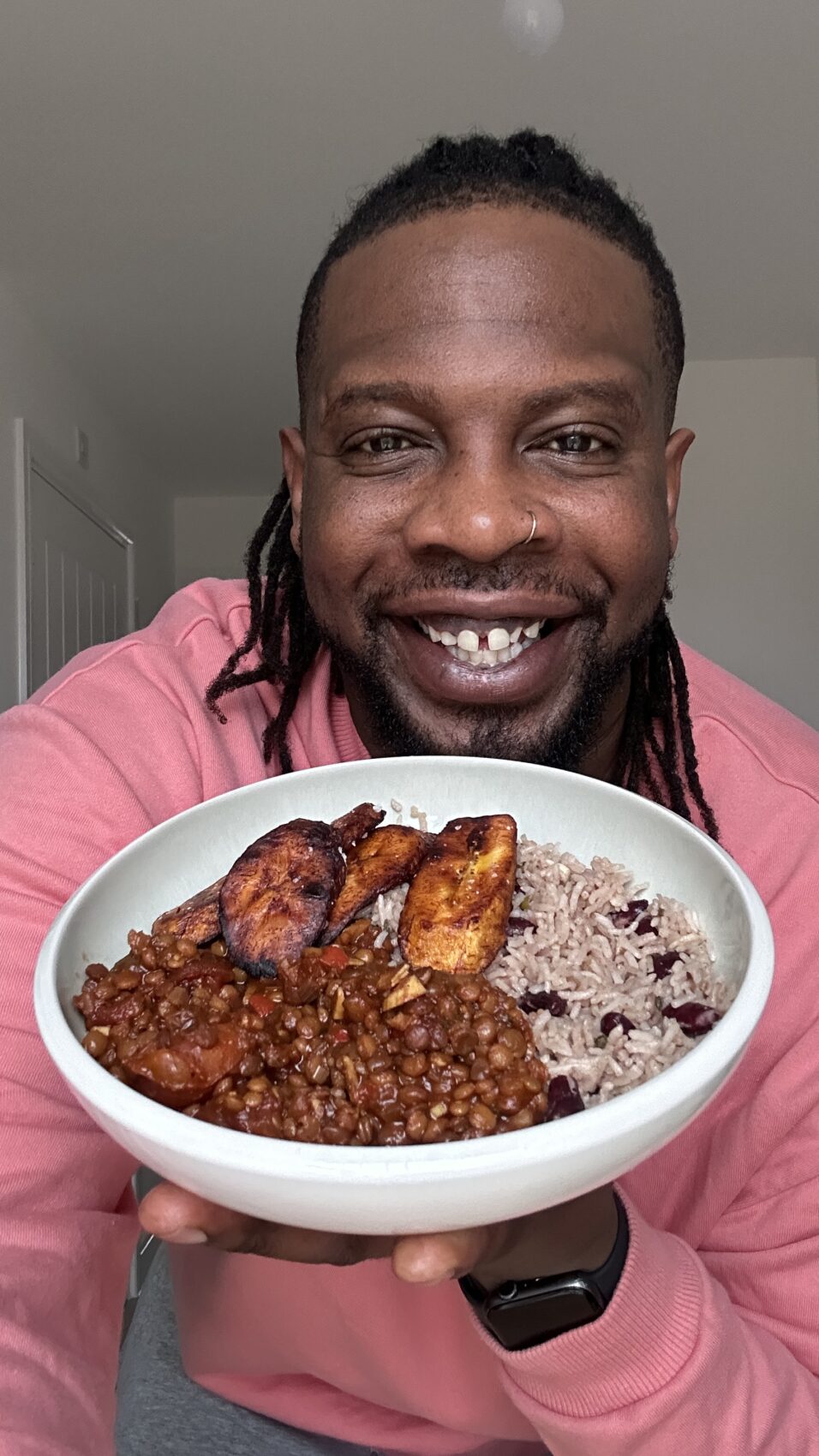
As part of our “Chat with a Vegan” series, Emma Levez Larocque sat down and spoke with Ebenezier Odeniyi. Ebenezer is a cook based just outside of London in the United Kingdom. We hope you find his experience and advice helpful no matter where you are on your own plant-based journey.
You can follow Ebenezer across multiple platforms:
If you’re interested in learning more after reading this blog post, you can find great resources on the Vancouver Humane Society’s PlantUniversity website, and subscribe to get free plant-based recipes and be notified when the next interview is posted.
My name is Ebenezer Odeniyi. I’m an online cook and I’m based just outside London.
Can you tell us about your journey to veganism? What initially inspired you to adopt a plant-based lifestyle?
My journey started in 2019. I lost my auntie to cancer, same way I lost my late mother and father. It was a conversation between my cousins and siblings on how we could look after ourselves a bit better. I knew myself diets weren’t spoken of, vegetarian, pescatarian, and veganism or being plant-based. I tried to look into plant-based a bit more, done quite a bit of research, watched a lot of documentaries, and then one day I decided to just go fully into it. So I’ve been vegan for five and a half years. I mean, I used to run a lot back in the day. I took a gap of running, and I think after a month or so I was doing it [eating vegan], I decided to go for a run and I just couldn’t stop.
So with that, I knew that I was on the right path, and it was all about just trying to make meals that I enjoyed, really. I cooked quite a bit before, so it was just taking those flavours from that into the sort of plant-based cooking I was doing.
What were the challenges you faced in going vegan in your community?
Growing up, everything had meat or some sort of fish inside it, and the meals I grew up on, the meals I loved, everything that came from my Nigerian background technically was vegetarian, but obviously growing up with it just being meat felt right. So I’ve had to learn how to replace certain flavours. And I mean, going online at the time, it really didn’t help me because all I saw was porridge bowls and stuff like that, and it really wasn’t my sort of palate. So yeah, over time I learnt to do vegan Nigerian cuisine, like jollof rice. One of the biggest ones was curry goat. I used to love that as a kid, and just replacing the flavours and cooking some magic in the kitchen. Yeah, it’s been magical.
What do you feel are some of the biggest misconceptions people have about who veganism is “for”?
So when people say “veganism,” they expect it to be more of the classy sort of type of people. I think it’s totally wrong (laughs) because I mean, when people say it’s expensive, well, eating poultry, or eating meat can be expensive as well. It all depends on your preference.
If you’re going out and buying all the fancy vegan steaks or chicken replacements, then yeah, it’s going to be expensive. But if you do it at a cost effective price, you’re getting not just tasty, you’re getting a nutritious meal. It’s all about balancing your palate correctly. If you learn to correct the flavours that you want, create the flavours that you want, and put ’em in them meals, you’re going to be laughing. You’re going to be enjoying some tasty, tasty meals.
So when people say it’s expensive or fancy, I’m just like, “Nah, it is up to what people believe.” I’m never going to be one of the people that are going to throw it in your face. I just say, “Just let the food do the talking, and hopefully you enjoy it.” I don’t think I’ve had any complaints, really.
How has your cultural identity shaped your approach to veganism?
I mean, I’m a Nigerian kid and I grew up in London. Growing up in a diverse community, mostly surrounded by Black and Asian people, I felt a sense of responsibility to advocate for the younger generation. I’m mostly focused on inspiring younger kids, helping them see that veganism can be part of our culture too. I mean, if older adults want to pick it up, that’s good, but it’s all about changing the future for me. So it’s trying to push that, but not throw it in people’s face. And just hopefully they click one day (laughs) if that makes sense.
I’m trying to build a cookbook at the moment, so I’m trying not to release all the recipes. (laughs) Seeing people recreate my recipes is one of the best feelings. It’s just like when I make that dish and I taste it, and I’m just like, “Yeah, that’s something from my childhood,” and I fully enjoy it. So when I see other people making it, it actually does warm my heart. It’s… I don’t know how to explain it. It’s a warming feeling.
Do you feel it has influenced the way you advocate for plant-based living?
The way that my Nigerian culture has gone into my plant-based living is that all the flavours that I remember as a child comes into everything I try and make. Plant-based eating doesn’t have to mean giving up cultural foods. It could be the tiniest little flavours. So it could be like, we use a lot of crayfish when it comes to Nigerian cooking. I don’t know why (laughs) but for some reason we do. So it’s placing little stuff like that and it tastes, when you get that taste, it really, really helps. It keeps you going knowing that you can still eat your food that you grew up on. You can eat stuff like jollof rice, or stuff like egusi. I mean, I don’t eat it often, because I always say it’s a sleeping tablet if you eat pandiem or fufu.
When you have them flavours, it just reminds you of why you’re doing it in that sort of way. It is a different type of feeling than just making a normal Chinese takeaway or fakeaway. Yeah, I mean, when my family tastes it, that’s even better because they’re like, “I didn’t know you could do this.” And I’m like, “Yeah!” (laughs)
How do you see the intersection of veganism and racial or social justice?
The recipes that people would love to see, I believe, are from Afro-Caribbean and even Southern Asia. People always love them sort of recipes. So just having that sort of representation in the community within social media, it helps a lot. It could be anything from breakfast desserts, main dinners, snacks. People want to see vegan recipes that reflect their own culture and experiences.
I mean, we have times like Christmas where people show their take with their own cultural food. We have Thanksgiving for Americans where they put that southern twist on it, and I love seeing recipes like that. Vegan food can include all kinds of food.
In what ways do you feel veganism can contribute to broader social change?
The way I see veganism making more of a social change is it brings more of a community in a bigger, formal way. During lockdown, a friend of mine, Millie, and I started doing community vegan days—like pizza nights or burger nights—where everyone put their own spin on it. If they’re coming from Afro Caribbean, Southern Asian, white, it didn’t matter. People would put their own twist on it. It was one of the best times that got me through lockdown quite a bit. It was one of the best times to see people coming together.
I feel like we need more stuff like that, because everyone’s got their own story. Everyone’s walked their own path. And when people bring their own food, or post their own food, I feel like social media is a big barbecue – everyone brings their own plate, and that brings people together. People meet and make friends. I’ve made some of my best friends from social media, and we all come from different backgrounds. So it’s nice that it brings people together.
I just wish people would have more of an open mind when it comes to trying different flavours. Not necessarily just different flavours from people’s different cultures, but trying a bit of vegan or plant-based food, because as soon as you mention it, people kind of get defensive. So it’s a hard and tricky one but we try to break down barriers. I do believe in not throwing it in people’s face, and letting them try little bits and pieces. Everyone eats a bit of plant-based food already, whether it’s like a potato or anything like that. It’s all about just being open, to be honest.
Can you tell us about any experiences where you’ve seen a shift in someone’s perspective on veganism?
With food, I’ve had friends who have watched Cowspiracy on Netflix and they’ve stopped drinking milk. Little changes just like that help in a long way. I’ve also had friends do one veggie week a month, which I think is really good. That’s a great way of just resetting your body.
I’m not saying everyone has to go vegan or plant-based, but just little changes add up a lot. It’s not just your own palate or what you’re putting inside your body, but in terms of the brutal industry that there is, I think every little bit helps. So if it slows it down a bit, it slows it down a bit, and it gives a bit of a life to an animal that fully deserves it, to be honest.
How do you think veganism contributes to personal well-being?
For my own journey, as I said, once I tried it after a month, I had energy to just run, which was crazy. I used to run just for fun, but suddenly I was pushing distances like I was training for a marathon or something.
But it wasn’t only physical, it was more or a mental sort of state. I felt lighter. My head was clearer. I hadn’t really experienced that. So it’s declogging your body and making it work the way it should work. That is one of the true beautiful things of it. I mean, I can’t really remember the days before that. Well, I remember little bits where my body would ache for just standing on my feet all day, but once I changed, it was different. I had energy for days and I still do.
It is something I believe everyone should try at least once, and just experience what it feels like. It truly is good for the body.
Do you have any favorite recipes or plant-based dishes that are culturally significant to you?
There are definitely recipes that mean a lot to me that I’ve managed to veganize. One of them is curry goat—obviously, without the goat! I used to love that as a child.
So it brings memories of, I could tell you dozens of memories, but stuff like jollof rice where normally we’d use chicken stock, I’ve managed to replace it. I mean when family taste it, they were a bit like, “This is fully vegan?” And I’m like, “Yeah!” You don’t have to use the chicken stock. You just have to be creative with the flavours.
Another one is a egusi and pounded yam, that’s probably my all time favourite. I had it dozens times as a kid, loads and loads! I think I recently posted it this month, and people are making it again. I just love that it’s such flavours. When you can create those little pockets of flavour within it, and it warms my heart. So yeah, I have quite a few dishes that mean a lot to me.
What advice would you give to someone in your community who is interested in veganism but feels unsure about how to start?
The advice I would give to anyone in my community who is willing to start this, but is just afraid or just thinking about it, is to just try little steps.
You don’t have to go “cold turkey” into it—excuse the pun! (laughs) You just do little steps. If it’s milk that you cut out first, then maybe it’s dairy that you cut out next. I mean, I think the biggest one that people find is cheese and stuff like that. So just drop little bits and change little bits over time.
Gradually do it and find what you like. Don’t be worried about exploring different flavours within it, because your palate’s going to change. Your palate’s going to change really good, because the flavours that you’ll be tasting is crazy!
Looking ahead, what impact do you hope to have through your advocacy?
So the impact I hope to have is: just as long as I change or helped one person, that means a lot to me. So the fact I’ve helped hundreds and thousands of people that DM me through my social media, it is crazy.
For anyone unsure, don’t be worried about if you’re going to like it or not. You will learn. Sorry, that sounds like I’m forcing someone! (laughs) You will learn to love the flavours that you make in the kitchen, even if it’s just stuff like tofu. Everyone knows it tastes very bland, but if you learn to use it and season it before you cook it, it changes. It changes and becomes very different.
Just experiment a lot with different types of food, whether it’s chickpeas, lentils, mushrooms, the world is your oyster with it—excuse another pun—but just try it! Because I was one person that was like, “I’m never going to be able to eat this again, or that again,” but I’m eating similar foods like it. I have the flavours there, I have the textures and I’m thriving off it. I don’t have no protein deficiency. I’m a big lad. I still train, I’ll still weight train. I still go for runs every now and then. And yeah, it’s not going to harm you. If anything, it’ll make you better.
My hope is to keep reaching more people, showing them that veganism isn’t about giving things up—it’s about finding new ways to enjoy the foods you love and making choices that feel good for you and the world. If I can help others see that, even in a small way, that’s the impact I want to leave.
How do you stay motivated in your work as a vegan advocate? What keeps you inspired?
The way I stay motivated and inspired is seeing people recreate my dishes. It gives me that little tick, that feeling, “Yeah, I’m doing the right thing.” I mean, most of the dishes I do post online are meals I eat myself. I don’t believe in food waste, so I would try and create dishes to be perfect and correct enough to post. To have people make it over and over again is truly is one of the best feelings.
So myself, I keep myself grounded. I live life like a day in day life. I’m now doing this full time. So I have a schedule that I stick to. I go to t he gym regularly, go for walks. I have fun with my friends.
I live a normal life, but I mean, I would probably be one of the most nosiest friends ever when it comes to your food. I’ll ask you what’d you have for dinner last week, or it’d be a random question. It’s just my mind ticking thinking, “Oh, what can I make with that?”
I used to work as a delivery driver for groceries before, I’ll be carrying the groceries to someone’s door, and instantly I’m looking inside that box thinking, “Oh, I can use that and that and make another recipe.” (laughs) So I have just of recipes just stored on my phone and where I have different combinations that I’m still trying. Most of them are working out and people are enjoying them, like me. I think today I just posted a jalapeno tofu, which… yeah, that was a random one as well!
So it’s just keeping myself grounded within it and just enjoying what I do. And obviously, take good care of yourself as well. So if you need a break, always just listen to your body and take the break.
Is there anything you’d like to share with our audience about veganism that you feel doesn’t get talked about enough?
What I would like to share with the community that doesn’t really get talked about enough is just be kind. Just be kind, because everyone has their own journey and it’s about being supportive.
If someone all of a sudden changes from veganism to something else, there’s a reason behind it. And it’s just about being supportive enough. It’s about the idea that every meal counts. So if someone might be in it 50%, just be kind to that person. I don’t like seeing trolling online, so I would just say just be kind to people because you never know what someone’s going through.
And there’s millions of people that actually eat a plant-based dinner. But I understand there’s a misconception about being plant-based and being vegan. So if someone’s fully vegan and in that lifestyle, then yeah, that’s a win-win. But if they’re just having a plant-based meal, that’s a win also. So don’t be too quick to judge, just be supportive of people because we’re all human at the end of the day, and if you want to be kind to animals, you’ve got to be kind to humans as well. So yeah, I mean it sounds quite weird, but it makes sense in my head! (laughs)
This interview from PlantUniversity’s “Chat with a Vegan” series was hosted by Emma Levez Larocque of Plant-based RHN and featured Ebenezer Odeniyi.
More posts like this
I’m a photojournalist; here’s how I advocate for animals using the power of imagery
I’m a photojournalist; here’s how I advocate for animals using the…
I’m a family doctor; here’s what I tell my patients about going plant-based
I’m a family doctor; here’s what I tell my patients about…
Chat with a vegan: Stephanie Redcross West, business coach and marketing strategist
Chat with a vegan: Stephanie Redcross West, business coach and marketing…
Chat with a vegan: Dreena Burton, cookbook author and fascial stretch instructor
Chat with a Vegan: Dreena Burton, cookbook author and fascial stretch…
Chat with a vegan: Derek Simnett, nutritionist, YouTuber, and athlete
Chat with a Vegan: Derek Simnett, nutritionist, YouTuber, and athlete As…
Chat with a vegan: Pamela Fergusson, Registered Dietitian
Chat with a Vegan: Pamela Fergusson, Registered Dietitian As part of…
